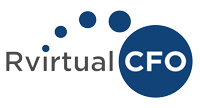People working in the gig economy earn income as freelancers, independent workers, or employees. Typically, an online platform is used to connect people with potential or actual customers to provide goods or services. Examples include renting out a home or spare bedroom and providing meal delivery services or rides.
During the pandemic, many people joined the ranks of the gig economy to help make ends meet – and they’re still doing so. Whether you are part of the gig economy because it’s a primary source of income or want to make extra money with a side business, taxpayers must understand that money earned through this work is usually taxable. As such, it must be reported as income on their tax returns.
This income is usually taxable even if:
- The taxpayer providing the service doesn’t receive an information return, like a Form 1099-NEC, Form 1099-MISC, Form 1099-K, or Form W-2.
- The activity is only part-time or side work.
- The taxpayer is paid in cash.
There are tax implications for both the company providing the platform and the individual performing the services. For example, people working in the gig economy are generally required to pay income taxes, Federal Insurance Contribution Act or Self-employment Contribution Act tax and additional Medicare taxes.
Independent contractors may be able to deduct business expenses but should double-check the rules around deducting expenses related to using things like their car or house. Special rules usually apply to a rental property also used as a residence during the tax year. Taxpayers should remember that rental income is generally fully taxable and should remember to keep records of all business expenses.
Workers who do not have taxes withheld from their pay have two ways to pay their taxes in advance:
- Gig economy workers who have another job where their employer withholds taxes from their paycheck can fill out and submit a new Form W-4. The employee does this to request that the other employer withholds additional taxes from their paycheck. This additional withholding can help cover the taxes owed from their gig economy work.
- To pay their taxes and any self-employment taxes owed throughout the year, gig workers can make quarterly estimated tax payments.
If you have questions about working in the gig economy and how it affects your taxes, don’t hesitate to call the office.

